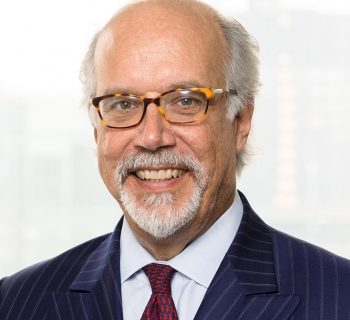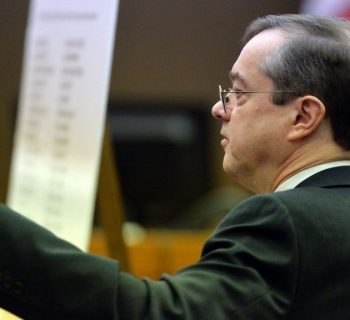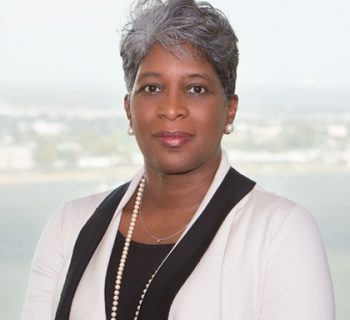The article, Nine West Clawback Ruling Fortifies Bankruptcy Safe Harbor by Matthew J. Gold, Dov R. Kleiner and LCA Fellow Marc Rosen, was originally published on Law360, on September 28, 2020.
A recent decision by the U.S. District Court for the Southern District of New York confirms that the defendant-friendly holding of the U.S. Court of Appeals for the Second Circuit's 2019 decision in In re: Tribune Company Fraudulent Conveyance Litigation will be applied broadly to benefit defendants and rejects efforts by the plaintiffs to work around Tribune.
The decision, In re: Nine West LBO Securities Litigation, reaffirms the vitality of the bankruptcy safe harbor as a defense against clawback actions against shareholders that tender their shares in a leveraged buyout, or LBO, and provides an instructive case study of the plaintiffs' unsuccessful efforts to distinguish and organize the litigation to circumvent Tribune.
Background
Nine West arose from the 2014 LBO through which Sycamore Partners Management LP took private The Jones Group, a publicly traded global footwear and apparel company, and renamed it Nine West. As part of the transaction, over $1.1 billion was paid to public shareholders of Jones Group.
Roughly four years later, Nine West filed a Chapter 11 petition. A plan of reorganization, confirmed in 2019, authorized a litigation trustee to bring constructive and intentional fraudulent conveyance claims against the former shareholders based on Bankruptcy Code Section 544(b), which allows a trustee to bring state-law fraudulent conveyance actions that could have been brought by creditors outside of bankruptcy. The plan also authorized the indenture trustee for various notes issued by Nine West to bring constructive and intentional fraudulent conveyance claims challenging the same payments.
The litigation trustee and the indenture trustee brought 13 actions in six federal judicial districts against former shareholders of Jones Group that had received payments through the LBO, and against former officers and directors of Jones Group. These actions were subsequently consolidated for pretrial purposes.
The plaintiffs strove mightily to get around Tribune: They took care to file their complaints only in judicial districts outside of the Second Circuit; they declined to name as defendants former shareholders that otherwise would have fit the criteria to be sued but who resided in New York; and they carefully scrubbed their complaints to remove any direct reference to the paying agent agreement, one of the main agreements girding the LBO, in an attempt to prevent the defendants from relying on the paying agent agreement in a motion to dismiss.
The officer and director defendants and the shareholder defendants each filed a motion to dismiss the complaint based on the safe harbor of Bankruptcy Code Section 546(e), as applied in Tribune. The court granted both motions, rejecting all of the plaintiffs' attempts to distinguish Tribune or avoid its effects. For the most part, the court considered the officer and director issues to be the same as those in the shareholder action, but some aspects of the officer and director issues (discussed below) broke new ground.
Safe Harbor Defense
Two key elements of the safe harbor defense were litigated in Nine West:
- There must be a qualifying transaction, such as a "settlement payment" or a "payment in connection with a securities contract."
- The challenged payments must have been made by or to a qualifying entity, such as a "financial institution."
Qualifying Transaction
The defendants argued that the merger agreement for the LBO was a securities contract such that the payments made to former shareholders were "payments in connection with a securities contract." The plaintiffs noted that when the defendants had tendered their shares (in return for a right to receive payment) the shares had been canceled; they argued that because the shares had been canceled by the time the payments were received, those payments were not "payments in connection with a securities contract" because the securities no longer existed by the time of payment.
But the court reviewed the facts of Tribune and determined that there is no distinction for safe harbor purposes between a stock redemption and a stock cancellation paired with a right to payment. It further reasoned that because Bankruptcy Code Section 741(7)(A)(vii) defines "security contract" to include "similar" transactions the definition is meant to be applied broadly, and concluded that the Nine West transaction was "at the least" similar to a securities transaction.
Accordingly, the defendants were held to have received payments in connection with a securities contract, and thereby to have satisfied the qualifying transaction requirement.
Qualifying Entity
The Bankruptcy Code definition of "financial institution" in Section 101(22) includes not only banks and other such entities, but also customers of such financial institutions if the financial institution is acting as an agent or custodian for those customers in connection with a securities contract. In Tribune, the Second Circuit held that Tribune was a financial institution because Tribune had engaged Computershare to act as depositary in connection with the Tribune LBO, and Tribune was Computershare's customer.
The defendants argued that Wells Fargo played a role in the Nine West LBO similar to that of Computershare, such that Wells Fargo was an agent of Jones Group, and accordingly that Jones Group was a financial institution.
The plaintiffs attempted to distinguish Tribune by arguing that Wells Fargo was not Jones Group's agent but instead a mere "non-agent contractor" because Wells Fargo's relationship with Jones Group fell short of the common law standard for an agent-principal relationship. The plaintiffs also argued that under the agreement among Wells Fargo, Jones Group and Jasper Parent (the acquiring entity), Wells Fargo was better described as agent for Jasper Parent than agent for Jones Group.
The court sided with the defendants. It reasoned that regardless of the relationship between Wells Fargo and Jasper Parent, at a high level the paying agent agreement provided that Wells Fargo was tasked with holding money that belonged to Jones Group and paying that money to the shareholders, which was a "paradigmatic principal-agent relationship."
The court concluded that because Wells Fargo, which itself was a financial institution, was an agent of its customer Jones Group, Jones Group should be deemed a financial institution. And because Jones Group, the transferor, was deemed a financial institution, the shareholder defendants satisfied the qualifying entity requirement.
The court further held that Jones Group was considered a financial institution for the purposes of the action against officers and directors, even though Wells Fargo did not play a direct role in the payments to officers and directors. It reasoned that because Section 101(22) defines "financial institution" to include a customer if the financial institution is acting as an agent or custodian for that customer in connection with a securities contract, all payments made by the customer in connection with that securities contract would be deemed to have been made by a financial institution. Accordingly, all payments by Nine West in connection with the merger agreement were deemed to have been made by a financial institution.
As an independent ground for dismissal, the court determined, based on public documents, that certain defendants fit within the definition of financial institution either because they were registered under the Investment Company Act of 1940 or because they were commercial banks. Accordingly, for those defendants, the qualifying entity requirement was satisfied even if the determination regarding Nine West as financial institution were to be reversed on appeal.
Preclusion of Creditor State Law Actions
The court also applied the Second Circuit's ruling in an earlier Tribune decision, in holding that because the litigation trustee's claims were barred by the safe harbor, the claims brought by the indenture trustee, acting as a creditor under state fraudulent conveyance law, were also barred under the doctrine of implied preemption. Also precluded were unjust enrichment causes of action.
Consideration of Materials Outside the Complaint
The court rejected the plaintiffs' argument that the agreement among Wells Fargo, Jones Group and Jasper Parent (the paying agent agreement) could not be considered by the court in considering a motion to dismiss because the paying agent agreement had not been specifically named or incorporated into the complaint.
The court concluded that it could review the paying agent agreement because it was integral to the complaint, and that the complaint's legal conclusion that Wells Fargo was a "non-agent contractor" was necessarily based on the plaintiffs' interpretation of the paying agent agreement — which the court could assess only by reviewing the text of the agreement.
Plaintiffs' Efforts to Find a Favorable Venue
As the plaintiffs were (rightly) concerned that Tribune was an unfavorable precedent, they attempted to obtain a forum outside of the Second Circuit. The complaints were all filed with federal courts that are outside of the Second Circuit, and the complaints strategically declined to name as defendants former shareholders that were residents of New York. The plaintiffs then sought to centralize pretrial proceedings in the U.S. District Court for the District of Massachusetts.
However, the plaintiffs' efforts were for naught, and the litigation was brought to New York. The Judicial Panel on Multidistrict Litigation noted that it would not consider as relevant the possibility that the substantive law of the Second Circuit might favor one side. Instead, it based its determination on its findings that the litigation's center of gravity is the Southern District of New York, and that New York was the most convenient venue for parties and witnesses.
Analysis and Conclusion
The safe harbor bars (1) with respect to state law fraudulent conveyance claims, both actual intent and constructive intent cases, and (2) with respect to federal law fraudulent conveyance claims, constructive intent cases but not actual intent cases.
Although the plaintiffs asserted an actual intent fraudulent conveyance case they are precluded from prosecuting it because the safe harbor blocks their state law case and the federal law case is time barred, because the reach-back period for federal fraudulent conveyance actions is two years before the petition date and the Chapter 11 petition was filed approximately four years after the LBO.
Nine West continues the winning streak for shareholder defendants facing clawback actions in the aftermath of failed LBOs. The courts have generally been giving a narrow interpretation to the U.S. Supreme Court's 2018 decision in Merit Management Group LP v. FTI Consulting Inc., rebuffing the plaintiffs' efforts to spin Merit Management as a signal to the lower courts to rein in the safe harbor defenses. Indeed, the sole citation to Merit Management in the Nine West decision was in support of the defendants' argument for a broader construction of the definition of "financial institution."
The plaintiffs' efforts to obtain a venue outside of the Second Circuit were stymied largely by Nine West's location in New York. It is likely that eventually a case will be brought in another circuit, in which case Tribune will not be binding precedent.
For purposes of leverage and settlement, it is of critical importance that the defendants were able to prevail on a motion to dismiss. For this to happen, the defendants had to successfully bring before the court the paying agent agreement, which explains why the plaintiffs made such efforts to excise the paying agent agreement from their description of the transaction in their complaints. How this type of issue will be resolved in future cases may depend upon how the LBOs are structured.
Read more at: https://www.law360.com/articles/1314107/nine-west-clawback-ruling-fortifies-bankruptcy-safe-harbor?copied=1









